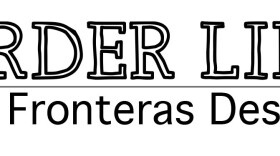The next political debate in Washington, D.C. -- that is, if we ever get beyond the fiscal cliff -- will be immigration reform. There is widespread consensus that the system is broken, and needs fixing. The question will be, does that fix come in the form of "comprehensive immigration reform," that attempts to fix most aspects of the problem, including a path to citizenship for immigrants already in this country without documents, securing the border, employment security and labor needs? Or will immigration reform proceed in a piecemeal fashion, fixing one problem at a time?
That's the debate, and here are some of the terms, policies, and programs that will be scattered throughout the conversation:
Illegal Immigrant -- About 11 million people are believed to be in this country illegally, though many of those people entered legally and then overstayed their visas. Technically, it refers to someone who lives in the United States without having filled out the legal immigration paperwork. To be an "illegal immigrant" in this country means a shadow existence without the kinds of legal identification that would allow you to get a driver's license (in most states), buy auto insurance, get in-state tuition rates. Also, these immigrants are more vulnerable to exploitation and tend to drive down wages for low-skilled workers.
The term "illegal immigrant" is controversial, as the adjective "illegal" doesn't accurately describe the noun, "immigrant." He or she may have immigrated illegally, but many believe calling that individual an "illegal immigrant" is a slur. In fact, news organizations are being urged to no longer use this term despite the fact that the Associated Press Stylebook still considers it an accurate and neutral description. Preferred terms, according to the activist site Colorlines, are "undocumented immigrant," "unauthorized immigrant," or "immigrant without papers."
Economic Migrants -- People who come to this country, legally or not, to seek improved economic conditions.
Guest Workers -- Visa programs available for foreign workers to work in this country include the H-1B visa, with a cap of 85,000 per year; the L-1 visa program, which allows foreign workers of an international company with offices in the U.S. to relocate to the U.S. for a short period of time; and the H-2A visa, which allows farmers to bring in an unlimited number of farmworkers. According to Forbes, about 1.5 million people enter this country legally as workers or students each year.
H-1B visa -- A non-immigrant visa which allows U.S. employers to temporarily employ foreign workers in specialty occupations, including but not limited to architecture, engineering, mathematics, physical sciences, social sciences, biotechnology, medicine and health, education, law, accounting, business specialties, theology, and the arts, and requiring the attainment of a bachelor’s degree or its equivalent as a minimum.
STEM Bill -- Some politicians prefer a piecemeal approach to immigration reform, rather than a comprehensive bill. The STEM Bill is an example of piecemeal reform. STEM stands for science, technology, engineering and mathematics. This legislation would grant green cards for up to 55,000 foreign-born, U.S.-trained graduates every year. It passed the House this fall, but was blocked by Democrats from being introduced in the Senate because the bill included a provision to drop the Diversity Visa lottery.
Diversity Visa Lottery - The lottery aims to diversify the immigrant population in the United States, by selecting 50,000 applicants mostly from countries with low rates of immigration to the United States in the previous five years to apply for green cards, or permanent residency.
Green Card -- “Green card” is a colloquial term for authorization to remain permanently in the United States as a Legal Permanent Resident. A green card holder (permanent resident) is someone who has been granted authorization to live and work in the United States on a permanent basis. As proof of that status, a person is granted a permanent resident card, commonly called a "green card."
Political Asylum- An effort by an individual to seek protection in this country because of fear of persecution due to race, religion, political beliefs, membership in a social group or nationality in their home country. Asylum is granted to someone who is already in this country and unable to return to their home country because of these fears.
Refugee -- A person located outside of the U.S., of special humanitarian concern to the U.S., who demonstrates they were persecuted or fear persecution due to race, religion, nationality, political beliefs or membership in a particular social group. In addition, a refugee is not firmly settled in another country. Anyone seeking political asylum must meet this formal definition of refugee.







